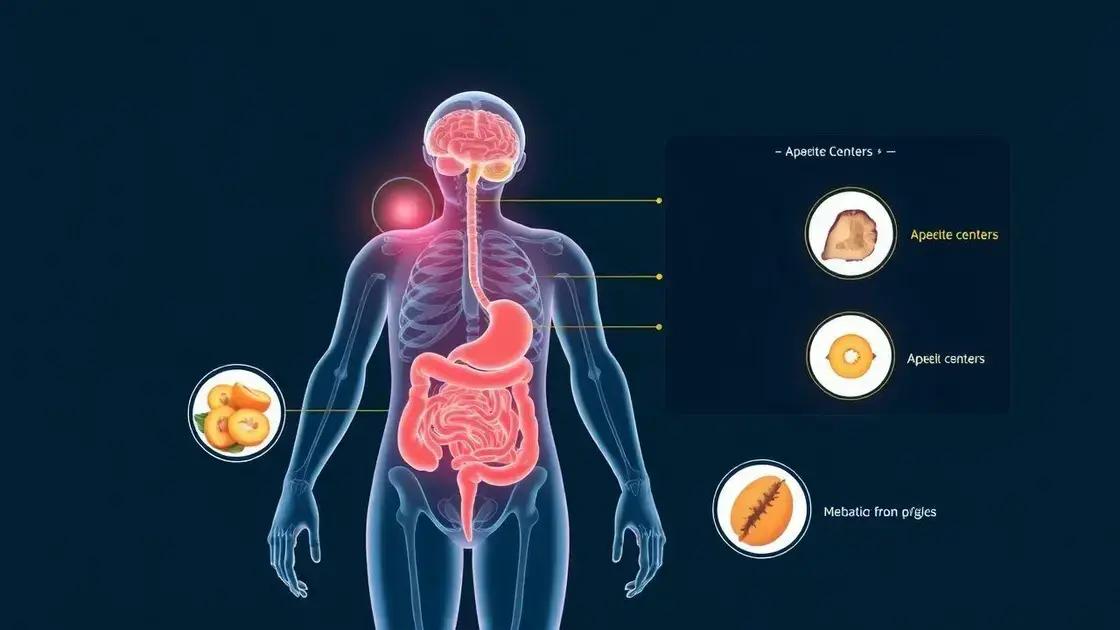Venvanse fact checking reveals that the medication can influence weight management through appetite regulation and metabolic effects, with effectiveness varying among individuals and requiring proper medical supervision for optimal results.
Venvanse fact check is crucial for anyone curious about weight loss methods. Many have turned to it, but is it all it seems? Let’s dive into the details.
Origins of Venvanse Claims
The discussion around Venvanse and weight loss began when users started reporting changes in their appetite while taking the medication. Originally developed and FDA-approved for ADHD treatment, the medication’s effects on appetite regulation caught attention.
Medical professionals observed that some patients experienced reduced food cravings and changes in eating patterns. This sparked interest in the scientific community about potential mechanisms behind these effects.
Historical Development
The appetite-suppressing effects were first noted during clinical trials for ADHD treatment. Healthcare providers began documenting cases where patients reported feeling less hungry throughout the day.
Understanding the Context
It’s important to note that Venvanse belongs to a class of medications that can influence appetite regulation through specific brain chemical interactions. The medication’s impact on neurotransmitters may affect eating behaviors and energy levels.
Research institutions have conducted various studies to understand these effects better. While some findings suggest potential impacts on appetite, the relationship between the medication and weight management continues to be studied.
Documentation and Reports
Healthcare databases have accumulated substantial documentation about user experiences. These reports have contributed to ongoing discussions about the medication’s various effects, including those related to appetite and eating patterns.
Analyzing Weight Loss Effects

When examining Venvanse weight loss effects, research shows several key mechanisms at work. The medication may influence appetite control centers in the brain, potentially affecting eating patterns and food choices.
Appetite Regulation
Studies indicate that the medication can impact neurotransmitters involved in hunger signaling. Many users report feeling more in control of their eating habits, with reduced impulsive snacking and better portion management.
Metabolic Impact
Research suggests that the medication might affect metabolic processes. Scientists have observed changes in energy expenditure patterns, though these effects vary among individuals. Some studies note alterations in how the body processes nutrients.
Behavioral Changes
Users often experience modifications in their eating behaviors. These changes may include:
- More structured meal timing
- Better recognition of hunger cues
- Reduced emotional eating patterns
- Improved food choice awareness
Individual Variations
The extent of weight-related changes can differ significantly among users. Factors such as lifestyle, diet, exercise habits, and individual metabolism play important roles in determining outcomes. Healthcare providers typically monitor these effects as part of overall treatment plans.
Research continues to explore the relationship between the medication and weight management, with ongoing studies examining long-term patterns and effectiveness in different populations.
Scientific Perspectives
The scientific community has conducted extensive research on Venvanse’s effects on metabolism and appetite regulation. Leading researchers have published numerous peer-reviewed studies examining the medication’s impact on various physiological processes.
Research Findings
Clinical studies have revealed several key findings about the medication’s effects:
- Impact on dopamine and norepinephrine levels
- Changes in appetite-regulating hormones
- Effects on metabolic rate
- Influence on eating behaviors
Medical Expert Insights
Healthcare professionals emphasize the importance of understanding the medication’s primary purpose and mechanisms. Leading specialists note that any changes in weight should be monitored as part of a comprehensive treatment plan.
Current Research Trends
Modern studies are focusing on:
- Long-term effectiveness patterns
- Individual response variations
- Genetic factors influencing outcomes
- Optimal dosing strategies
Evidence-Based Observations
Research institutions continue to document the medication’s effects through controlled studies. These observations help healthcare providers better understand how different patients may respond to treatment.
Scientists are particularly interested in the relationship between the medication’s primary therapeutic effects and its influence on appetite regulation. This ongoing research contributes to a more comprehensive understanding of the medication’s full range of effects.
Women Over 30 Share Experiences

Real experiences from women over 30 provide valuable insights into Venvanse usage and weight management. Their stories offer diverse perspectives on how the medication has impacted their daily routines and lifestyle choices.
Personal Journey Stories
Many women report changes in their eating patterns and energy levels. Sarah, 35, shares: “I noticed better focus on my meal planning and less mindless snacking.” Another user, Jennifer, 42, describes improved organization in her daily nutrition routine.
Lifestyle Adjustments
Women have reported various lifestyle changes while using the medication:
- More structured meal times
- Better work-life balance
- Increased awareness of hunger cues
- Enhanced ability to maintain regular exercise routines
Professional Women’s Perspectives
Career-focused women in their 30s and 40s have shared how the medication has helped them manage their busy schedules while maintaining healthy habits. Many note improved ability to balance work demands with self-care routines.
Long-term Observations
Women who have used the medication for extended periods describe their experiences with maintaining consistent routines. They emphasize the importance of working closely with healthcare providers to monitor progress and adjust approaches as needed.
These shared experiences highlight the importance of individual responses and the value of personal healthcare journeys. Each story provides unique insights into how different women navigate their health and wellness goals.
Safety and Side Effects
Understanding safety considerations and potential side effects is crucial when using Venvanse. Healthcare providers carefully monitor patients to ensure optimal outcomes and minimize any concerns.
Common Considerations
Users may experience various effects that typically include:
- Changes in appetite patterns
- Variations in sleep schedules
- Fluctuations in energy levels
- Alterations in daily routines
Monitoring and Management
Healthcare providers recommend regular check-ups to track progress and adjust treatment as needed. Important monitoring aspects include:
- Regular vital sign checks
- Periodic health assessments
- Ongoing communication with healthcare providers
- Lifestyle adjustment support
Professional Guidance
Medical professionals emphasize the importance of:
- Following prescribed dosage instructions
- Maintaining open communication with healthcare providers
- Reporting any unexpected changes
- Regular health monitoring
Lifestyle Considerations
Healthcare providers often suggest complementary lifestyle practices:
- Maintaining consistent sleep patterns
- Regular exercise routines
- Balanced nutrition plans
- Stress management techniques
Working closely with healthcare providers helps ensure appropriate monitoring and support throughout the treatment journey.
Final Expert Verdict

Healthcare professionals and researchers have reached several key conclusions about Venvanse and weight management. Their expert analysis provides valuable insights for individuals seeking to understand the medication’s effects.
Professional Consensus
Medical experts emphasize that individual responses can vary significantly. They highlight the importance of:
- Personalized treatment approaches
- Regular medical supervision
- Comprehensive health monitoring
- Individual goal setting
Evidence-Based Findings
Current research and clinical experience show that:
- Effects may vary among different individuals
- Results work best as part of a comprehensive health plan
- Regular monitoring helps optimize outcomes
- Individual factors influence results
Healthcare Provider Recommendations
Medical professionals generally advise:
- Following prescribed treatment plans carefully
- Maintaining open communication with healthcare providers
- Incorporating healthy lifestyle habits
- Setting realistic expectations
Looking Forward
The medical community continues to study and understand the medication’s full range of effects. Healthcare providers emphasize the importance of working closely with medical professionals to develop appropriate treatment strategies that align with individual health goals.
Understanding Venvanse and Weight Management: The Complete Picture
The relationship between Venvanse and weight management continues to be an area of active research and professional interest. Healthcare providers emphasize the importance of personalized approaches and proper medical supervision when using any medication.
From scientific studies to real-world experiences shared by women over 30, we’ve seen how individual responses can vary. The key takeaway is the importance of working closely with healthcare professionals to develop appropriate treatment plans that align with personal health goals.
Remember that every person’s journey is unique, and success often comes from combining proper medical guidance with healthy lifestyle choices. Always consult with healthcare providers to determine the most appropriate approach for your individual needs.
FAQ – Common Questions About Venvanse and Weight Management
How does Venvanse affect appetite and eating patterns?
Venvanse may influence appetite regulation through its effects on brain chemistry. Many users report better control over eating patterns and improved awareness of hunger cues. Always work with your healthcare provider to understand individual effects.
What results can women over 30 typically expect?
Results vary by individual, but many women report improved focus on meal planning and better eating habits. The key is maintaining regular communication with healthcare providers and following prescribed treatment plans.
How long does it take to see potential effects?
Individual responses vary, but most people begin noticing changes in their eating patterns within the first few weeks of treatment. Regular monitoring with healthcare providers helps track progress effectively.
Is medical supervision necessary?
Yes, medical supervision is essential. Healthcare providers help monitor progress, adjust treatment plans as needed, and ensure optimal outcomes through regular check-ups and professional guidance.
Can lifestyle changes enhance results?
Yes, combining treatment with healthy lifestyle habits often leads to better outcomes. This includes maintaining regular meal times, staying physically active, and following a balanced nutrition plan.
What should I discuss with my healthcare provider?
Discuss your health goals, current medications, lifestyle habits, and any concerns you may have. Open communication with your healthcare provider helps create an effective, personalized treatment plan.
